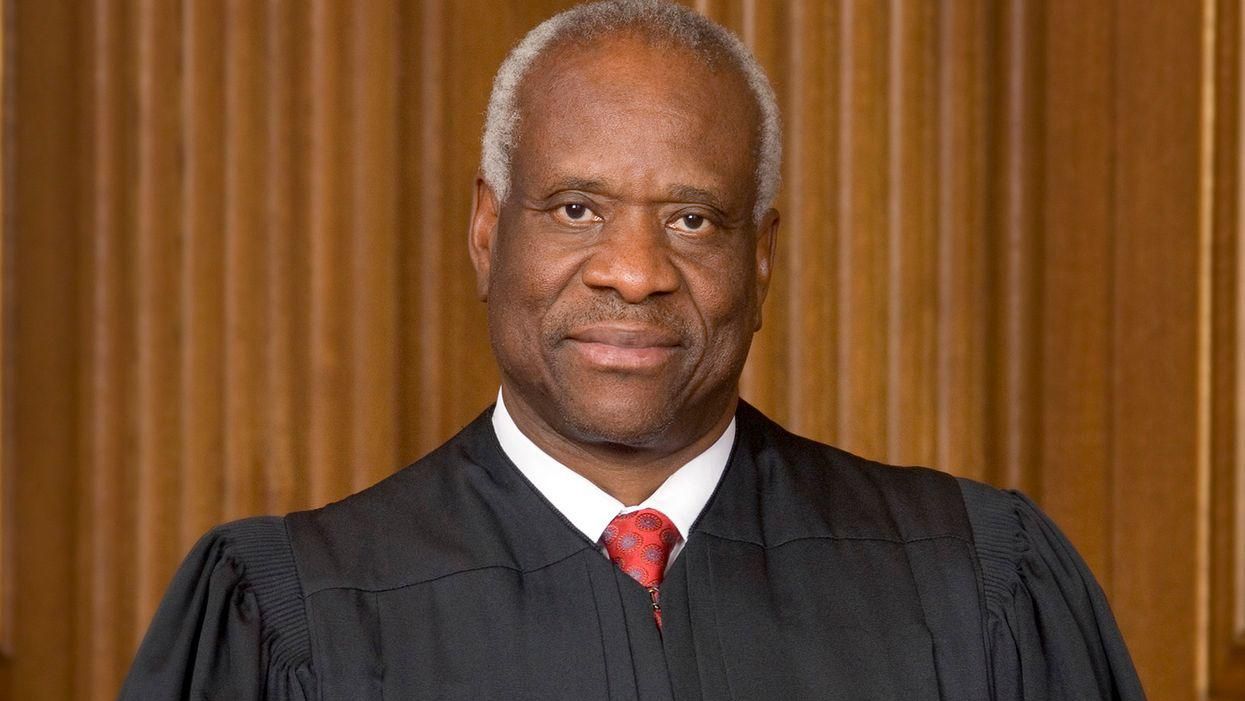With Roe overturned, Clarence Thomas is now preparing for a full-frontal assault on contraception, gay rights


On Friday, June 24, 2022, the U.S. Supreme Court announced its decision in Dobbs v. Jackson Women’s Health Organization — overturning, in a 6-3 ruling, Roe v. Wade and, along with it, 1992’s Planned Parenthood v. Casey, and paving the way for individual states to outlaw abortion.
In his majority opinion, Justice Samuel Alito wrote, “The Constitution does not confer a right to abortion; Roe and Casey are overruled. The authority to regulate abortion is returned to the people and their elected representatives.”
Under the Dobbs ruling, millions of women in the United States will lose access to legal abortion. But the implications of Dobbs go way beyond abortion rights, and Justice Clarence Thomas himself is saying so. Thomas, one of the six justices who voted to overturn Roe, is now saying that the U.S. Supreme Court should reevaluate right-to-privacy decisions protecting gay rights and access to contraception.
Who would you vote for in 2024, Biden or DeSantis? Vote now.
Thomas wrote, “In future cases, we should reconsider all of this Court's substantive due process precedents, including Griswold, Lawrence, and Obergefell.”
Griswold v. Connecticut, handed down by the Warren Court in 1965, struck down as unconstitutional a Connecticut law that prohibited the use of contraception by married couples. Just as Roe offered nationwide protection for abortion rights eight years later, Griswold established access to contraception as a nationwide right for married couples. And that right was extended to unmarried couples with Burger Court’s 1972 ruling in Eisenstadt v. Baird.
The Lawrence that Thomas is referring to is Lawrence v. Texas, a 2003 ruling that struck down a Texas sodomy law as unconstitutional and, by extension, invalidated similar laws in other states. Lawrence, like Roe and Griswold, was very much a right-to-private decision. Although Lawrence was a major victory for gay rights, it has protected the sexual liberties of heterosexuals as well — for example, heterosexuals who engage in anal sex — and gay men are not the only Americans who have a lot to lose if Lawrence is someday overturned.
The Obergefell v. Hodges ruling, handed down in 2015, struck down prohibitions on same-sex marriage. And if Obergefell were overturned, same-sex marriages in many parts of the U.S. would no doubt be invalidated by Republican-controlled state legislatures.
There are many other right-to-privacy decisions — some not discussed nearly as much as Obergefell or Griswold — that could end up on the High Court’s chopping block now that Roe has been overturned. One of them is Stanley v. Georgia.
Handed down by the Warren Court in 1969, Stanley guarantees one’s right to possess sexually explicit adult erotica even if that material is found to be obscene by a jury. The key word is “adult”; possession of child pornography is flat-out illegal under any circumstances. But the Stanley decision made it clear that where porn involving participants who are legal adults is concerned, obscenity has to do with creation or distribution — not simple possession. Under Stanley, no one can be prosecuted for obscenity in the United States for merely possessing adult porn.
But if Stanley were overturned, that right would go away. Obscenity was defined by the U.S. Supreme Court in its 1973 ruling Miller v. California, which tweaked an earlier definition of obscenity established with the 1957 ruling Roth v. the United States.
Another right that may be on the chopping block now that Roe has been overturned is the right to interracial marriage, which became a nationwide right in 1967 with the High Court’s ruling in Loving v. Virginia. That Warren Court decision struck down Virginia’s ban on interracial marriage and, by extension, similar bans in other states. Loving was also a right-to-privacy decision, saying that individual states had no right to prohibit interracial couples from getting married — and that decision helped pave the way for the Obergefell ruling 48 years later.
By overturning the 49-year-old Roe v. Wade ruling with its Dobbs decision, the U.S. Supreme Court has paved the way for Christian nationalists to attack a variety of other civil liberties as well — from contraception to same-sex marriage to interracial marriage. Abortion, as Justice Clarence Thomas himself has acknowledged, is only the tip of the iceberg.